Recent Events
Spring 2025 Events
Nuit des idées : Building Solidarity Across Difference | Thursday, March 27th, 2024
from 7-9 PM | The Club at Union Square
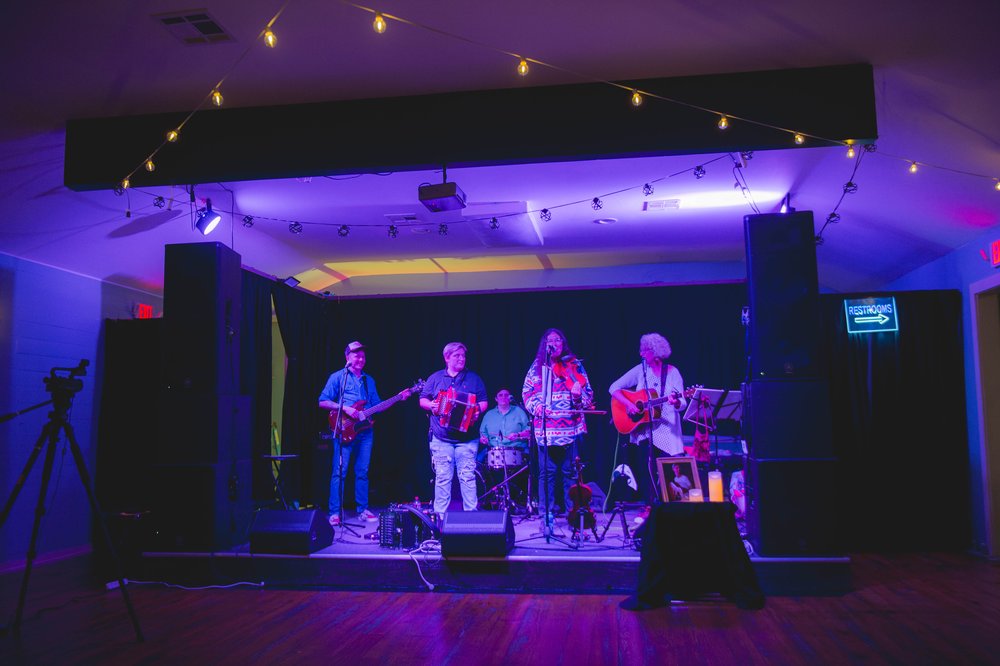 The LSU Center for French and Francophone Studies partnered with the French Consulate
in New Orleans on our first-ever participation in the International Nuit des Idées event. This year’s theme was “Common Ground” and the event at LSU was the first one
in the world this year!
The LSU Center for French and Francophone Studies partnered with the French Consulate
in New Orleans on our first-ever participation in the International Nuit des Idées event. This year’s theme was “Common Ground” and the event at LSU was the first one
in the world this year!
The CFFS hosted a program of food, drink, music and conversation around the topic of “Building Solidarity Across Difference.” The evening featured a concert-discussion with an all-star line up of Cajun LGBTQ+ musicians: Gina Forsyth (the MidCity Aces, the Bruce Daigrepont Band), guitarist Jan Boney, accordionist Rosemary Benoit (Lee Benoit & the Bayou Stompers, Louisiana Cajun Mixers), bassist Sam Wróbel (the 99 Playboys) and drummer Maegen Benoit (Lee Benoit Family Band). This event was an opportunity to think about the ways that our communities can create social cohesion and improve understanding across the many identities and perspectives that make up the richness of LSU and South Louisiana.
This event was co-sponsored by the College of Humanities and Social Sciences and the Department of French Studies.
Photo: Charlie Champagne
Translation, Semantics, and Louisiana with Fatima Shaik
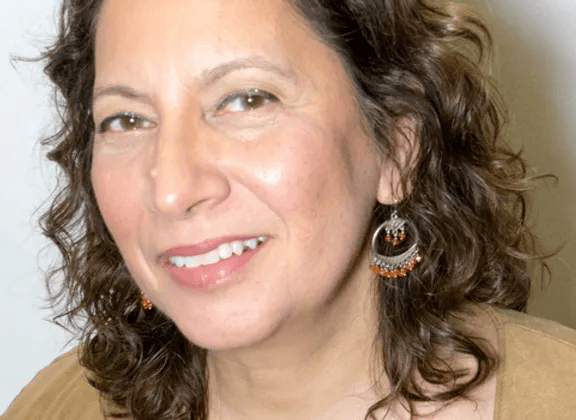 On Tuesday, March 11th, 2025 from 5PM-6PM at Hill Memorial Library Lecture Hall, the
CFFS hosted Fatima Shaik for a lecture titled "Translation, Semantics, and Louisiana.
Among the few written accounts by Louisiana people of African descent from before
the Civil War, the journals of the Société d’Economie et d’Assistance Mutuelle offer
unmediated access to the activities of this learned philanthropic society. Fatima
Shaik discussed the importance of semantics and history for translating these journals,
a major source for her Economy Hall: The Hidden History of a Free Black Brotherhood
(2022 American Book Award, 2022 LEH Humanities Book of the Year).
On Tuesday, March 11th, 2025 from 5PM-6PM at Hill Memorial Library Lecture Hall, the
CFFS hosted Fatima Shaik for a lecture titled "Translation, Semantics, and Louisiana.
Among the few written accounts by Louisiana people of African descent from before
the Civil War, the journals of the Société d’Economie et d’Assistance Mutuelle offer
unmediated access to the activities of this learned philanthropic society. Fatima
Shaik discussed the importance of semantics and history for translating these journals,
a major source for her Economy Hall: The Hidden History of a Free Black Brotherhood
(2022 American Book Award, 2022 LEH Humanities Book of the Year).
Fatima Shaik is the founder of the Saint Peter’s University Department of Communication
and Media Culture, and winner of the 2021 Louisiana Writer Award for her Economy Hall:
The Hidden History of a Free Black Brotherhood (The Historic New Orleans Collection,
2021).
The 3rd Annual CFFS Caribbean Digital Humanities Lecture took place on Friday, February
21st, 2025 with Dr. Ludovic Mompelat from the University of Miami.
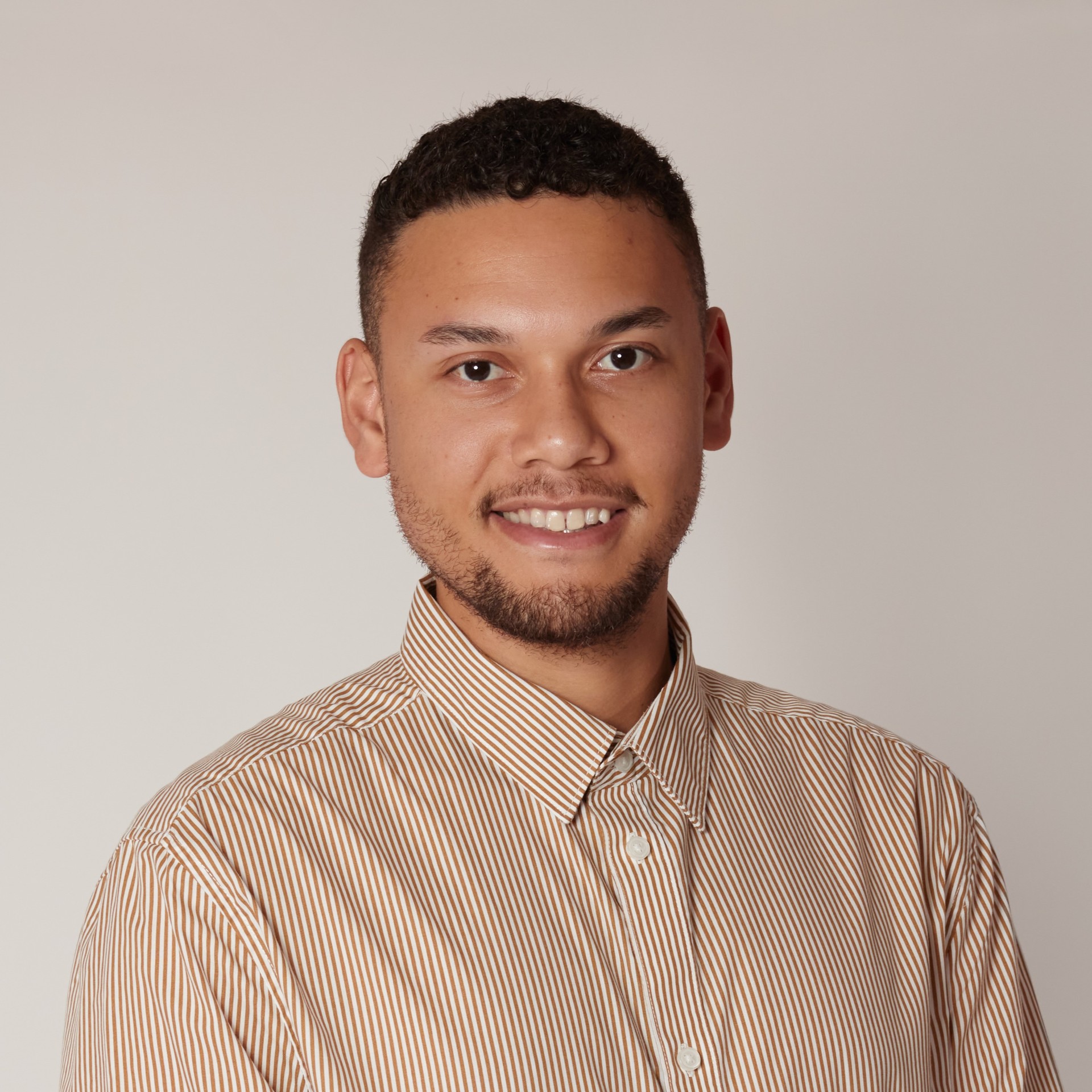 He presented on "Linguistic Challenges and AI Innovations for Haitian Creole: Overcoming
Language Barriers for Healthcare."This talk explored the challenges and necessary
steps involved in developing an AI-assisted translation and interpretation tool tailored
to the Haitian Creole-speaking population in Miami. By addressing linguistic variation,
multilingual code-switching, and domain-specific vocabulary for medical settings,
the project aims to advance equitable healthcare access for an underserved community
in the US. Key topics included the complexities of annotating and standardizing data
for Haitian Creole, optimizing traditional Machine Learning approaches with the newest
technologies in Machine Translation, and engaging local communities to ensure cultural
and practical relevance. The presentation also highlights strategies for scalability
and generalization, with a focus on quantifying success through user feedback and
community outreach. Dr. Mompelat discussed how cutting-edge natural language processing
(NLP) technology can bridge language barriers and reduce healthcare disparities.
He presented on "Linguistic Challenges and AI Innovations for Haitian Creole: Overcoming
Language Barriers for Healthcare."This talk explored the challenges and necessary
steps involved in developing an AI-assisted translation and interpretation tool tailored
to the Haitian Creole-speaking population in Miami. By addressing linguistic variation,
multilingual code-switching, and domain-specific vocabulary for medical settings,
the project aims to advance equitable healthcare access for an underserved community
in the US. Key topics included the complexities of annotating and standardizing data
for Haitian Creole, optimizing traditional Machine Learning approaches with the newest
technologies in Machine Translation, and engaging local communities to ensure cultural
and practical relevance. The presentation also highlights strategies for scalability
and generalization, with a focus on quantifying success through user feedback and
community outreach. Dr. Mompelat discussed how cutting-edge natural language processing
(NLP) technology can bridge language barriers and reduce healthcare disparities.
The Department of French Studies and the LSU Center for French and Francophone Studies
co-sponsored the event: New Perspectives on Early Modern France Symposium on Thursday, February 13th from 3-5pm in the Hill Memorial Library Lecture Hall.
This event included the following presentations: Faith Beasley (Dartmouth University)
on "Conversing with the Past: A Challenge to History," Leslie Tuttle (LSU) on "Oracles
at Play: A Brief History of Fortune-Telling Games," and Allison Stedman (University
of North Carolina, Charlotte) on "The Mind-Body Connection in Early Modern France."
This event was moderated by Kate Jensen (LSU).

On February 7th and 8th, the CFFS hosted the Spring 2025 Villa Albertine Resident
Mélissa Laveaux. Mélissa Laveaux is a Haitian-Canadian singer-songwriter with a 16
year career based out of Paris, France. She is a self-taught guitarist who has been
writing songs since the age of 16. During her visit, she visited the Memorial Hill
Special Collections and did guest lecture presentations at a graduate course on Disability
and Anthropology and a French senior seminar course. She also met with Department
of French Studies graduate students.
Fall 2025 Events
Reflections on the Paris Olympic Games: Perspectives from France and LSU Olympians
November 21, 2024 at 5:30 p.m.
Bo Campbell Auditorium in the Cox Communications Academic Center for Student Athletes
Building, LSU Campus
Reception immediately following at the Huey P. Long Field House (directly next door)
The School of Kinesiology heard from their esteemed colleague Professor Guillaume Bodet, France’s leading scholar in sport management representing our new partner university, University of Claude Bernard Lyon 1. After his remarks on the significance of the Olympic Games to France, there was a panel to hear from LSU Olympians with Aleah Finnegan (The Philippines, gymnastics), Maggie Mac Neil (Canada, swimming) and Vernon Norwood (USA, track).
The event was free and open to the public and all who love sports. This event was
co-sponsored by the CFFS.
Creative Writing Workshop: The Art of Storytelling and the West Indian Tale with Didyer
Mannette, Manick Siar-Titéca, & Amandine Vélin
Thursday, November 14th, 4:30-6:00 PM
The CFFS hosted a unique opportunity for undergraduate students to use French language skills! In this interactive workshop, writer and publisher Didyer Mannette, accompanied by Manick Siar-Titéca et Amandine Velin, presented Antillean folktales (le conte antillais) from their home island of Guadeloupe, which served as the frame for a creative writing workshop for student-generated stories. A fun and imaginative way to explore creative expression in French, this workshop was open to all students in French 2101 or higher!
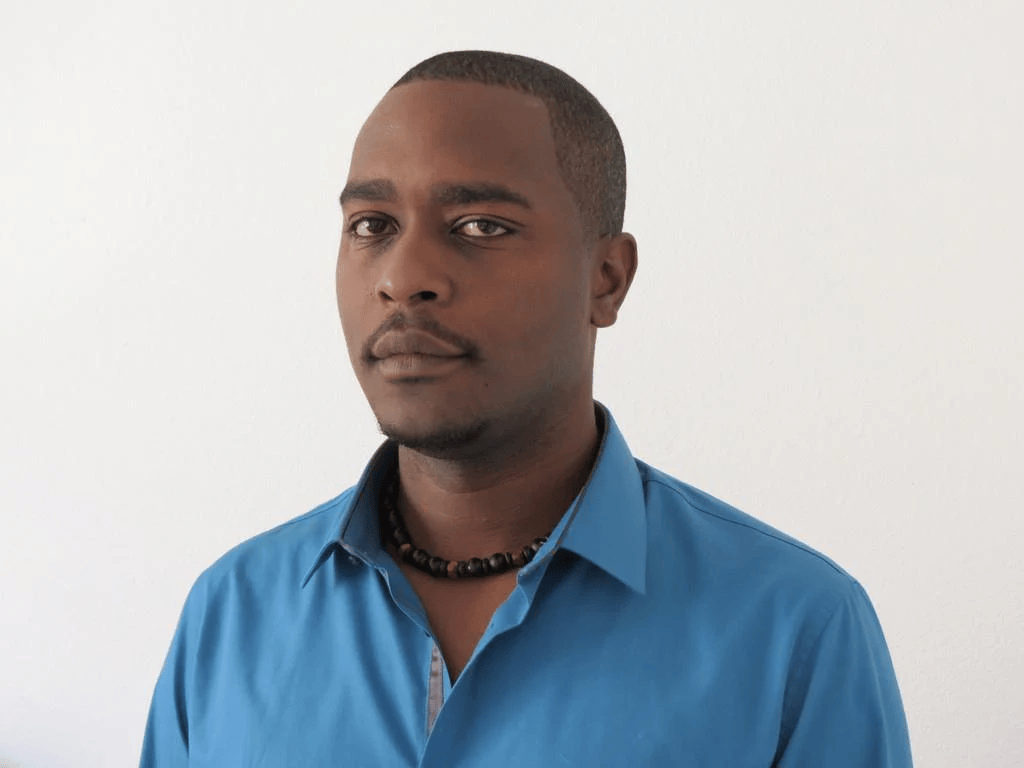 Didyer Mannette is a poet from Morne à l’eau in Guadeloupe and the director of the
Guadeloupean publishing house Neg Mawon. He has facilitated literary competitions
and many other cultural events around poetry, arts, and theatre in both French and
Creole.
Didyer Mannette is a poet from Morne à l’eau in Guadeloupe and the director of the
Guadeloupean publishing house Neg Mawon. He has facilitated literary competitions
and many other cultural events around poetry, arts, and theatre in both French and
Creole.
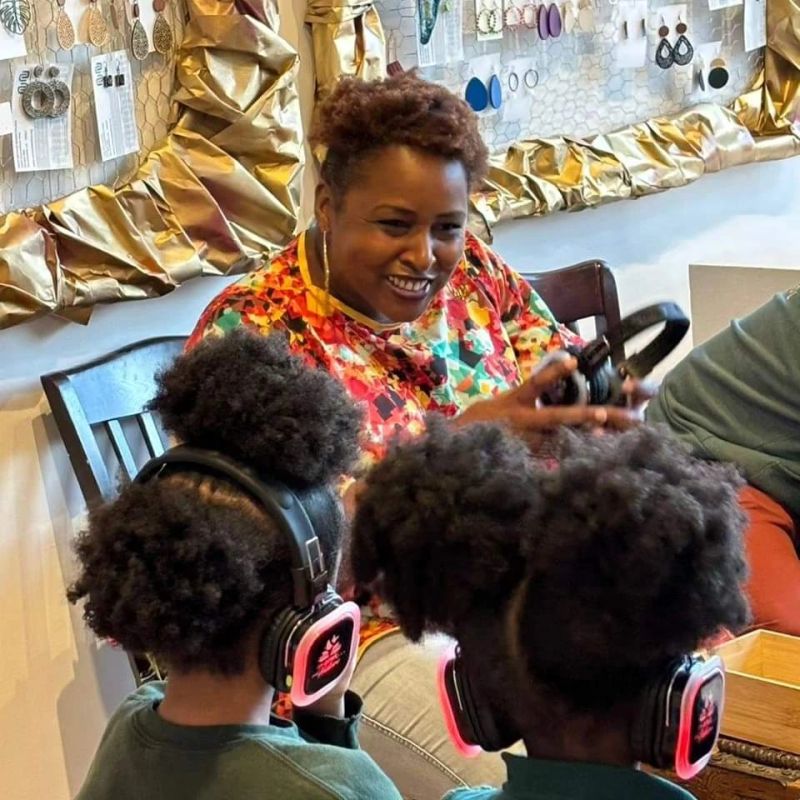 Manick Siar-Titéca is a trained psychologist and theater woman, as well as the designer
and director of the Publishing House "Une Voix...Une Histoire", the first audiobook
platform in the Caribbean dedicated to literature and Caribbean authors.
Manick Siar-Titéca is a trained psychologist and theater woman, as well as the designer
and director of the Publishing House "Une Voix...Une Histoire", the first audiobook
platform in the Caribbean dedicated to literature and Caribbean authors.
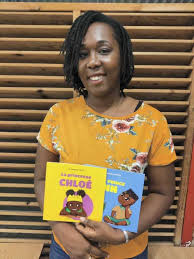 Amandine Vélin is children's book author and storyteller, originally from Guadeloupe,
that invites students to explore Creole culture and identity through captivating readings
of her books and collaborative workshops.
Amandine Vélin is children's book author and storyteller, originally from Guadeloupe,
that invites students to explore Creole culture and identity through captivating readings
of her books and collaborative workshops.
1805 Concert: September 26 & 27 at 7:30 PM | LSU Digital Media Center Theatre
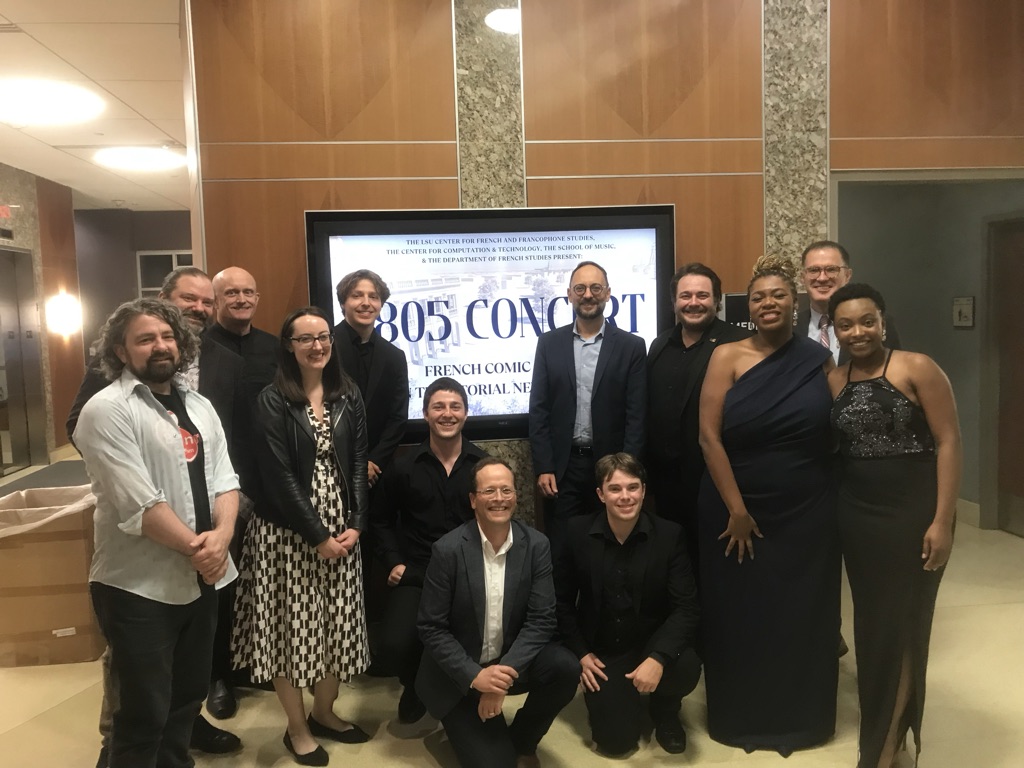 Attendees traveled back in time to New Orleans in 1805, in a unique concert event
that brought together classical musical performance, innovative humanities scholarship
and cutting-edge technology!
Attendees traveled back in time to New Orleans in 1805, in a unique concert event
that brought together classical musical performance, innovative humanities scholarship
and cutting-edge technology!
Presented by the LSU Center for French and Francophone Studies, the 1805 Concert was a unique recital of arias from the French comic operas popular in Louisiana at the turn of the nineteenth century, performed live in a digitally-enabled acoustical environment that restitutes the soundscape of a massive theatre proposed for the New Orleans waterfront in 1805.
Please see the dedicated event page for more information.
Spring 2024 Events
From April 18-20, the CFFS co-hosted the conference French and Francophone Philosophy Today with keynotes Souleymane Bachir Diagne (Columbia), Penelope Deutscher (Northwestern), François Raffoul (LSU, emeritus). The conference will include a panel featuring Claire Colebrook (Penn State), Jeff Bell (Southeastern Louisiana University), and Dan Smith (Purdue) discussing the work of John Protevi (French/Philosophy, LSU). This conference gathered a diverse set of international researchers, scholars and students to consider the past, present and future directions of French philosophy. Recognizing the precious and precarious francophone connections of the state of Louisiana, and its investments in humanistic traditions tied to French thought and cultures, the conference affirmed the important contributions of our LSU colleagues and our continued commitment to forging new connections between institutions, individuals and scholarly research networks. See the program here.
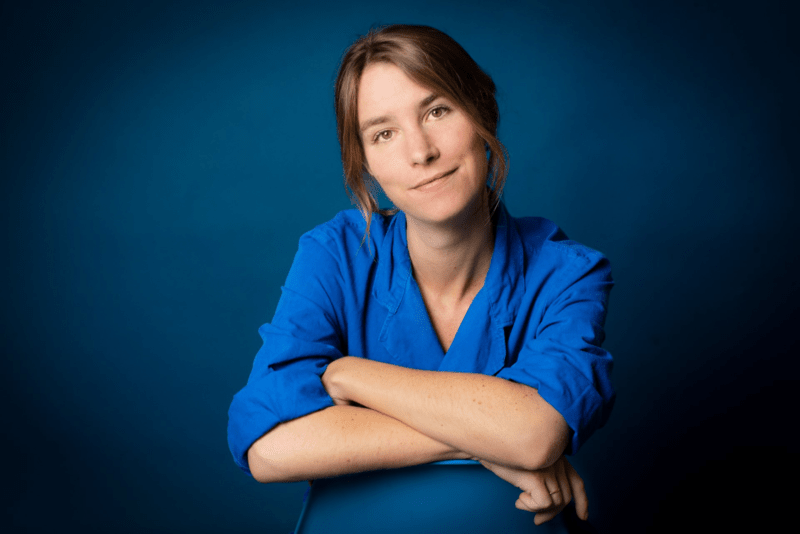
On Monday, March 25 from 4:30PM-6:30PM in 324 Hodges, the CFFS hosted author Julia Malye for a creative writing workshop in French.
In this creative writing workshop, students explored the art, ethics, and politics of translation to welcome multilinguism and multiculturalism in our writing. We looked at translation at both the micro and macro levels: thinking about the difficulty of translating one given story, one given word, or one’s culture, one’s world. We learned how (self)translation can be used as atool toward revision, and what the languages we speak/are in the process of learning can teach us about the words we choose and the stories we write. The workshop was intended to allow students to explore creative expression in French, and is open to students from beginning to advanced levels.
Julia Malye is the author of four novels published in France and works as a translator for Les Belles Lettres. She wrote her fourth novel and English debut both in French and in English: Pelican Girls, which is currently being translated in more than 20 languages. At the age of twenty-one, she moved to the United States to study fiction writing and graduated from Oregon State University's MFA program in 2017. Since 2015, she has been teaching creative writing to students both in the U.S. at Oregon State University and in France at the Sorbonne Nouvelle University and Sciences Po Paris.
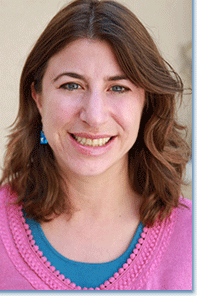 On March 8 from 12-1PM CST, the CFFS hosted a virtual lecture with Dr. Alyssa Sepinwall
(California State University) on her book Slave Revolt on Screen: The Haitian Revolution
in Film and Video Games (University Press of Mississippi 2021). Long silenced in academia, the Haitian Revolution has made some surprising appearances
in popular culture, ranging from a Chris Rock comedy to video games. This talk considered
how these media have portrayed the Haitian Revolution, and the challenges Haitian
artists have in creating their own depictions of the Revolution.
On March 8 from 12-1PM CST, the CFFS hosted a virtual lecture with Dr. Alyssa Sepinwall
(California State University) on her book Slave Revolt on Screen: The Haitian Revolution
in Film and Video Games (University Press of Mississippi 2021). Long silenced in academia, the Haitian Revolution has made some surprising appearances
in popular culture, ranging from a Chris Rock comedy to video games. This talk considered
how these media have portrayed the Haitian Revolution, and the challenges Haitian
artists have in creating their own depictions of the Revolution.
Professor Alyssa Goldstein Sepinwall earned a B.A. in intellectual history and political philosophy at the University of Pennsylvania and M.A. and Ph.D. degrees in history from Stanford University. Her research specialties include the French and Haitian Revolutions, modern Haitian history, Slavery and Film, French colonialism, French-Jewish history, history and video games, and the history of gender. She is the author of Slave Revolt on Screen: The Haitian Revolution in Film and Video Games (University Press of Mississippi) which received the Honorable Mention for the 2021 HSA biennial Book Prize, Haitian Studies Association and was named a CHOICE Top 10 Editors' Pick). Her previous works include The Abbé Grégoire and the French Revolution: The Making of Modern Universalism (UC Press, 2005; released in paperback, 2021) and Haitian History: New Perspectives (Routledge, 2012).
Friday, March 1, in 424 Hodges Hall: Lecture by Michael Monahan, Professor of Philosophy, University of Memphis: “From Series Being to Black Liberation: Dessalines, Biko, and Sartre's Critique of Dialectical Reason.”
Michael Monahan, Professor of Philosophy at the University of Memphis, is the author of Creolizing Practices of Freedom (2022) and The Creolizing Subject: Race, Reason, and the Politics of Purity (2011) and editor of Creolizing Hegel (2017). His primary philosophical interests are in questions of oppression and liberation, with a particular emphasis on race and racism. He draws primarily on Africana and phenomenological texts and traditions in his work. He has taught courses in Africana Philosophy, Philosophy of Race, Political Philosophy, Ethics, Feminist Philosophy, Hegel, and Nietzsche. His current work investigates the uses and abuses of theories of "recognition" in the context of racial oppression and liberation.
Co-sponsored by the Department of French Studies and the Center for French and Francophone Studies
On Friday, January 26th, the CFFS hosted "The Craft of Oral History: Best Practices and Lessons from the Louisiana French Project."
Oral histories are a powerful way to collect and preserve stories and personal memories from the past and present. They can teach us about our more immediate communities or families, and also help us to understand the everyday impact of larger historical or social events. In this workshop, Jennifer Cramer (Director of the LSU T. Harry Williams Center for Oral History) and Erin Segura (LSU Louisiana French Instructor) will give an overview of best practices for oral history research, including how to form interview questions, interviewing techniques, using technology, and ethics. They will also discuss the lessons learn from the Louisiana French Oral Histories project.
Fall 2023 Events
The CFFS hosted visits from leading scholars in French and Francophone Studies.
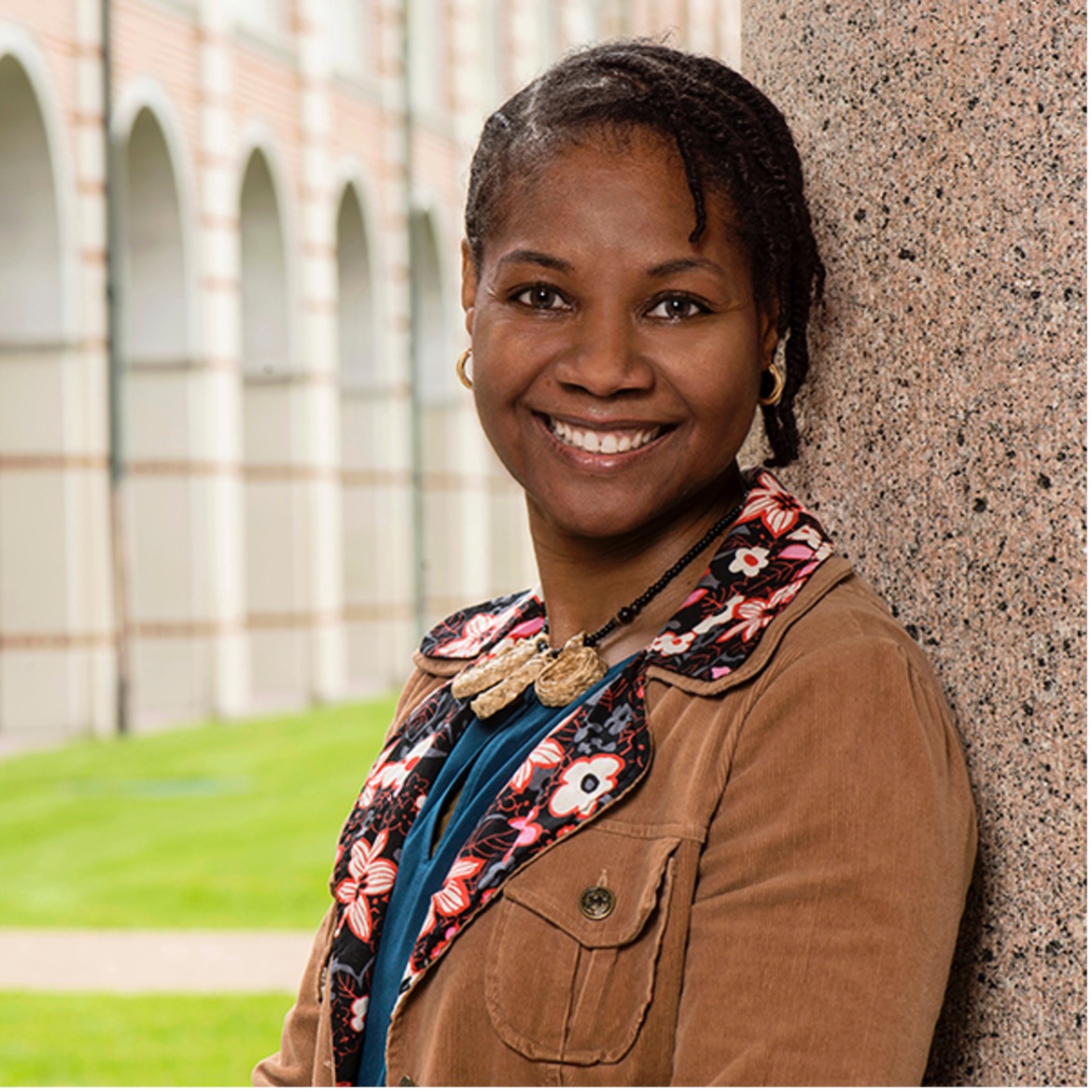 Dr. Jacqueline Couti. Dr. Couti discussed the motifs of déraison and rap(e)ture (aesthetic
of rape and rapture) in the Martinican Raphaël Tardon’s short story “La Rédemption
de Barbaroux” [“The Redemption of Barbaroux,” 1946] and novel Starkenfirst (1947),
in order to demonstrate how this author undermines Western humanism and the colonial
project. At the heart of this project stand power and pleasure. Considering this author's
representations of women not only as colonial tropes but as appellations d’origine
contrôlée (AOC) [“protected designations of origin”] of the imaginary allows us to
see how these persistent tropes still cause exclusion and dissension and negatively
affect the contemporary French Antilles.
Dr. Jacqueline Couti. Dr. Couti discussed the motifs of déraison and rap(e)ture (aesthetic
of rape and rapture) in the Martinican Raphaël Tardon’s short story “La Rédemption
de Barbaroux” [“The Redemption of Barbaroux,” 1946] and novel Starkenfirst (1947),
in order to demonstrate how this author undermines Western humanism and the colonial
project. At the heart of this project stand power and pleasure. Considering this author's
representations of women not only as colonial tropes but as appellations d’origine
contrôlée (AOC) [“protected designations of origin”] of the imaginary allows us to
see how these persistent tropes still cause exclusion and dissension and negatively
affect the contemporary French Antilles.
Dr. Jacqueline Couti is the Laurence H. Favrot Professor of French Studies at Rice University. Her research and teaching interests delve into the transatlantic and transnational interconnections between cultural productions from continental France and its now former colonies. She is the author of Sex, Sea, and Self: Sexuality and Nationalism in French Caribbean Discourses 1924-1948 (Liverpool, 2021) and Dangerous Creole Liaisons (Liverpool, 2016), among many other publications.
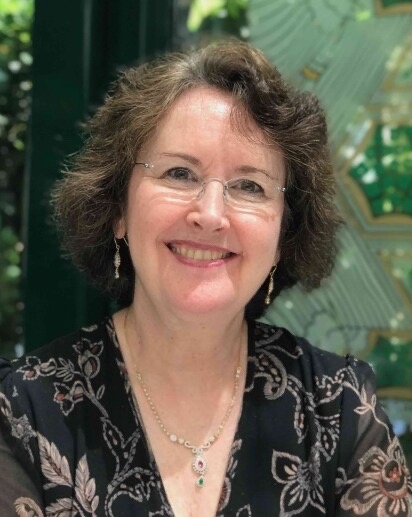 The CFFS welcomed back to LSU Faith Beasley, Professor of French at Dartmouth College,
a noted specialist of seventeenth-century French studies and feminism. Dr. Beasley's
lecture, entitled "Contextualizing the Past: Encounters with India à la française"?"
will discuss François Bernier's texts on India (1670-72), as well as their reception
and influence. Through these texts and their history, we can learn about the larger
history of cultural exchange between India and France during the early modern period,
and the importance of reading and interpreting texts within their historical context.
Dr. Beasley's most recent monograph, Versailles Meets the Taj Mahal: François Bernier,
Marguerite de la Sablière and Enlightening Conversations in Seventeenth-Century France
(Toronto, 2018), engages with important questions of cultural exchange between France
and India during the Early Modern period. In addition to this work, Professor Beasley
has long been a leading scholar of women’s writing in seventeenth-century France,
including (among many others) editing the volume Options for Teaching Seventeenth
and Eighteenth-Century French Women Writers (MLA, 2011) and co-editing, with LSU Professor
Kate Jensen, Approaches to Teaching the Princess of Clèves (MLA, 1998).
The CFFS welcomed back to LSU Faith Beasley, Professor of French at Dartmouth College,
a noted specialist of seventeenth-century French studies and feminism. Dr. Beasley's
lecture, entitled "Contextualizing the Past: Encounters with India à la française"?"
will discuss François Bernier's texts on India (1670-72), as well as their reception
and influence. Through these texts and their history, we can learn about the larger
history of cultural exchange between India and France during the early modern period,
and the importance of reading and interpreting texts within their historical context.
Dr. Beasley's most recent monograph, Versailles Meets the Taj Mahal: François Bernier,
Marguerite de la Sablière and Enlightening Conversations in Seventeenth-Century France
(Toronto, 2018), engages with important questions of cultural exchange between France
and India during the Early Modern period. In addition to this work, Professor Beasley
has long been a leading scholar of women’s writing in seventeenth-century France,
including (among many others) editing the volume Options for Teaching Seventeenth
and Eighteenth-Century French Women Writers (MLA, 2011) and co-editing, with LSU Professor
Kate Jensen, Approaches to Teaching the Princess of Clèves (MLA, 1998).
Spring 2023 Events
CFFS Introduction to Digital Humanities Workshop
On Friday, April 14, 2023, the CFFS is hosted an introductory workshop led by LSU faculty to learn more about the powerful, accessible computer-based techniques that are changing how we study and understand the humanities. This workshop was open to everyone and was a great introduction for undergraduate and graduate students, as well as faculty.
In this workshop, we:
- Talked about what DH is and how it is changing humanities study.
- Explained the methods and outcomes of exciting DH projects around the web.
- Presented two important currents of DH work, in textual analysis and geospatial mapping.
- Encouraged hands-on experiments with user-friendly DH applications.
- Played a virtual reality video game based on historical research.
This LSU CFFS workshop was facilitated by Professors Lauren Coats (English), Susan Grunewald (History), and Jeffrey Leichman (French). Room is subject to change depending on the level of interest
Mapping Marronage: Towards a Transatlantic Visualization of Freedom with Dr. Annette Joseph-Gabriel
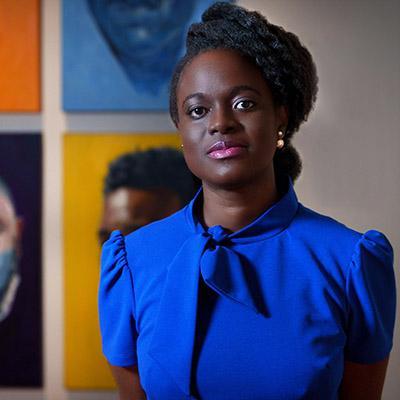 Friday, March 31, 2023
Friday, March 31, 2023
Mapping Marronage is an interactive visualization of the trans-Atlantic networks of intellectual, creative and political exchange created by enslaved people in the 18th and 19th century. It traces the geographic reach, crossings and intersections of letters, testimonies and financial exchanges by enslaved people of African-descent.
Annette Joseph-Gabriel is an Associate Professor of Romance Studies at Duke University. She works at the intersection of French and Afro-diasporic culture, literature and politics. Her areas of expertise include Black women’s writings, anti-colonial activism, and slavery in the French Atlantic.
CFFS Virtual Event - Louisiana Endowment for the Humanities Information Session
Friday, January 27, 2023

Fall 2022 Events
Storytelling the Haitian Past: A Collaborative Lecture with Laurent Dubois and Kaiama
Glover
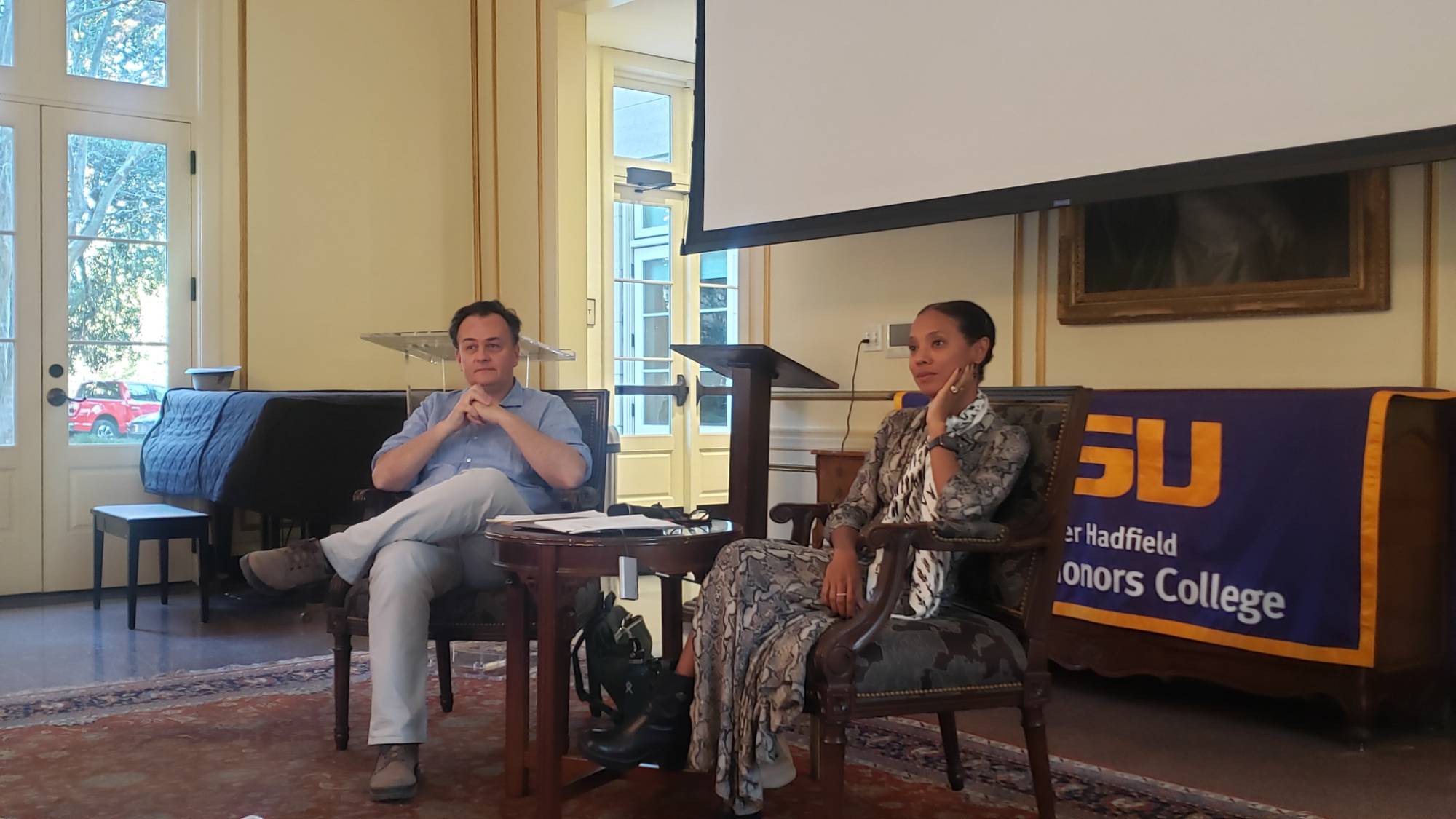
On Thursday October 20th, 2022, the CFFS hosted Laurent Dubois (John L. Nau Ill Bicentennial Professor of the History & Principles of Democracy and Africana Studies University of Virginia and Kaiama Glover (Ann Whitney Olin Professor of French and Africana Studies, Barnard College, Columbia University) who presented their joint work on the complementary relationship between literature and history in Haiti, and how these discourses work together to broaden our understanding of colonialism, resistance, and the pursuit of Black liberation.
Spring 2018 Events
"Édouard Glissant, l'éclat, et l'obscur | "Édouard Glissant, Radiance and Obscurity"
International Colloquium Organized by Louisiana State University and the Université
des Antilles, March 20-23, 2018
Colloque international et transdisciplinaire organisé par l'Université des Antilles
et Louisiana State University
Organisateurs:
Dominique Aurélia (Université des Antilles)
Alexandre Leupin (LSU)
Jean-Pierre Sainton (Université des Antilles)
Campus de Schoelcher du 20 au 23 mars 2018 | Ouvert au public
Pictures | Media Coverage | Program
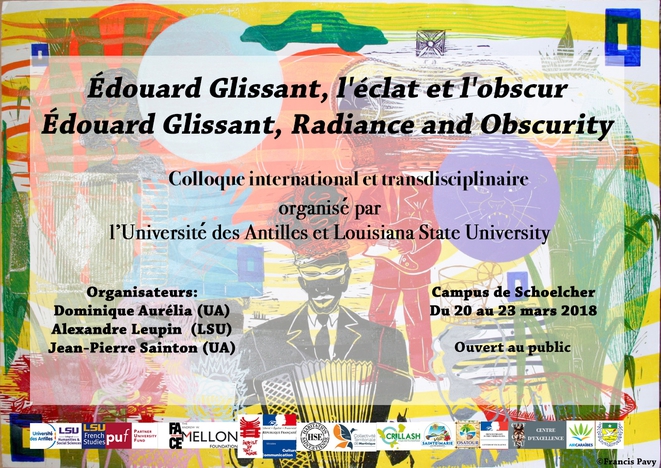
"Modern Odyssers: An Interdisciplinary Mini-Seminar" by Dr. Michelle Zerba and Dr.
Franck Collin (March 7-8, 2018)
Hill Memorial Library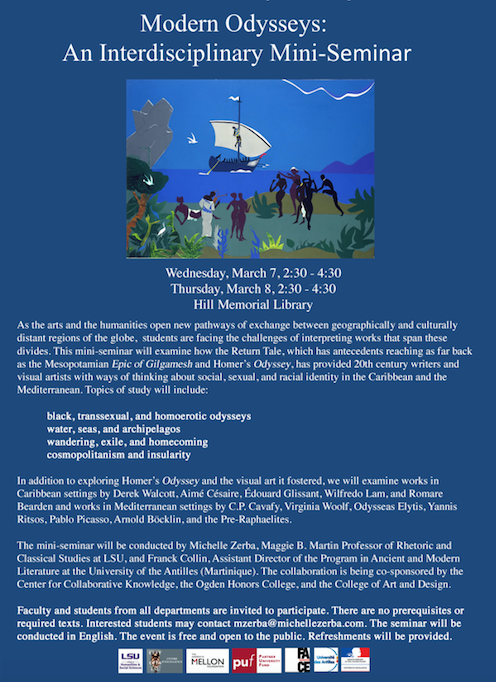
- As the arts and the humanities open new pathways of exchange between geographically
and culturally distinct regions of the globe, students are facing the challenges of
interpreting works that span these divides. This mini-seminar will examine how the
Return Tale, which has antecedents reaching as far back as the Mesopotamian Epic of Gilgamesh and Homer's Odyssey, has provided 20th century writers and visual artists with ways of thinking about
social, sexual, and racial identity in the Caribbean and the Mediterranean. Topics
of study will include:
- black, transsexual and homoerotic odysseys
-water, seas, and archipelagos
- wandering, exile, and homecoming
- cosmopolitanism and insularity
In addition to exploring Homer's Odyssey and the visual art it fostered, we will examine
works in the Caribbean settings by Derek Walcott, Aimé Césaire, Édouard Glissant,
Wildredo Lam, and Tomare Bearden and works in Mediterranean settings by C.P. Cavafy,
Virgnia Woolf, Odysseas Elytis, Yannis Ritsos, Pablo Picasso, Arnold Bocklin, and
the Pre-Raphaelites.
The mini-seminar will be conducted by Michelle Zerba, Maggie B. Marin Professor of
Rhetoric and Classical Studies at LSU, and Franck Collin, Assistant Director of the
Program in Ancient and Modern Literature at the Université des Antilles (Martinique).
The collaboration is being co-sponsored by the Center for Collaborative Knowledge,
the Ogden Honors College, and the College of Art and Design.